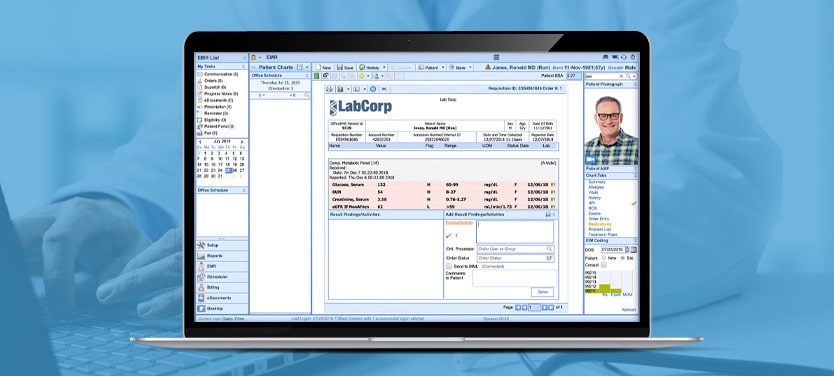
Why Integrated Labs are Vital in Your Pain Management EHR
While every medical profession could benefit from integrated labs in their Electronic H...
October 1, 2020
Specialists need a specialty-specific pain management EHR. Without the tailored tools you need to effectively run your practice, your team will experience inefficiencies and you will not be able to offer your patients the highest standard of care. Having a specialized pain management EHR gives your practice the tools it needs to improve risk management, improve information access, offer remote access, and simplify the documentation process. The difference in a specialty-specific pain management EHR and one-size-fits-all software is that it is built with your unique practice in mind. Keep reading to learn 4 ways a specialty-specific pain management EHR can help your practice boost care.
Tools Found in a Pain Management EHR
Better Risk Management
Pain-management specialists know better than anyone the danger involved in high-risk prescription drugs. Your pain management EHR can help you better manage this risk and protect your patients. This tool allows you to track and monitor e-prescriptions from the time it is prescribed and forward. This allows for greater patient protection and long-term health.
Your specialty needs quality tools in place that enable you to protect your patients and your practice. This will not always be found in traditional EHRs and is the reason providers need a specialty-specific EHR.
Access Key Information
A quality Pain Management EHR can help your practice improve accessibility to patient records prior to scheduled appointments. This enables your team to access key information specific to their needs at a faster pace. Providers can process actionable information at any point in their process.
With access to this information prior to a visit, providers are able to improve their clinical decision-making process. This then has a positive impact on the quality of patient care as well as the patient experience.
Remote Patient Access
While it is important for providers to access important information, patients need to as well. Your specialty-specific EHR should allow for remote patient access. Features like the patient portal make it possible for providers to help their patients access files and prescriptions remotely. This could be from home where they can open up virtual communications with them and improve patient engagement. Remote access is important now more than ever as we still face the COVID-19 pandemic.
Simplify Documentation
Every provider knows what it means to spend hours on documentation. The right tools can simplify this process so that you do not have to. A quality pain management EHR can reduce labor-intensive documentation with custom templates. These templates are tailored to the workflow of each provider within your organization, even each visit. With flexibility and accuracy in every step of the process, providers can return their focus to what they care about more than anything, patient care.
Your specialty practice needs a tailor-made pain management EHR. With the right tool, your team can better manage risk, gain access to important tools and information, offer improved access to patients, and increase efficiency. To learn more about a quality pain management EHR, click here.